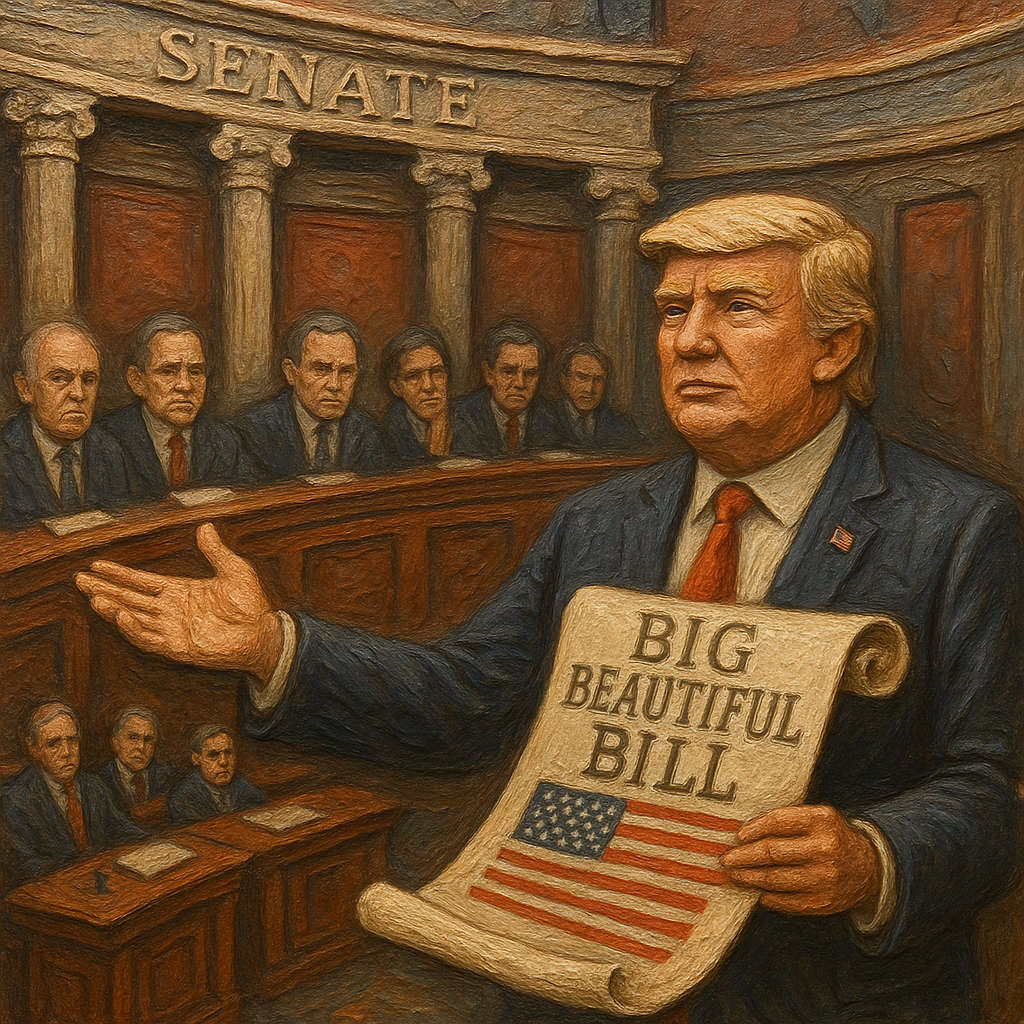Senate Advances Trump's 'Big Beautiful Bill' Amid GOP Divisions
In a significant legislative move, the U.S. Senate voted 51-48 early Saturday morning to advance President Donald Trump's ambitious tax and spending proposal, dubbed the "One Big Beautiful Bill Act." This decision propels the administration's agenda forward, aiming to extend the 2017 tax cuts and bolster border security funding.
The vote largely followed party lines; however, Republican Senators Susan Collins of Maine and Rand Paul of Kentucky broke ranks to oppose the measure. Collins expressed concerns over potential Medicaid cuts, stating that reductions "would be very detrimental to a lot of families and disabled individuals and seniors in my state." Paul criticized the fiscal implications, remarking, "Something's fishy," in reference to the bill's projected impact on the national debt. ([washingtonpost.com](https://www.washingtonpost.com/politics/2025/04/05/senate-budget-framework-trump/?utm_source=openai))
The proposed legislation seeks to extend the 2017 tax cuts, which are set to expire, and introduces additional tax breaks. It also allocates $175 billion for immigration and border enforcement, including plans to hire 10,000 additional deportation officers and 5,000 more Border Patrol agents, with a goal of deporting over one million undocumented immigrants annually. ([time.com](https://time.com/7298192/big-beautiful-bill-trump/?utm_source=openai))
Despite the advancement, the bill faces procedural hurdles. The Senate parliamentarian ruled that certain provisions, such as a $250 billion Medicaid reduction, violated Senate rules, necessitating revisions. This ruling has forced GOP leaders to reconsider elements of the bill, including controversial limitations on immigrant health benefits and cuts to food stamps, potentially delaying the legislation beyond the July 4 deadline set by President Trump. ([apnews.com](https://apnews.com/article/f6f4343bbc9c9a279bd7861c2e5c1b7b?utm_source=openai))
Treasury Secretary Scott Bessent has also urged Congress to remove a "retaliatory tax" measure from the bill, which would allow the president to impose up to 20% taxes on foreign investors from countries that unfairly tax U.S. firms. This provision has raised concerns on Wall Street and among international partners. ([reuters.com](https://www.reuters.com/legal/litigation/us-senate-republicans-race-resolve-tax-health-issues-trumps-tax-bill-2025-06-26/?utm_source=openai))
President Trump remains optimistic about the bill's prospects, referring to it as a "big, beautiful bill" and emphasizing its importance to his administration's agenda. However, with a narrow Republican majority in the Senate and unanimous Democratic opposition, GOP leaders must navigate internal divisions and procedural challenges to secure final passage.
